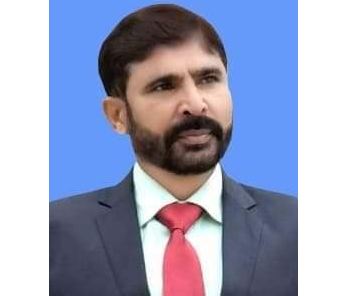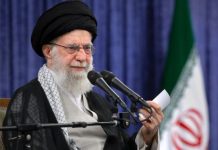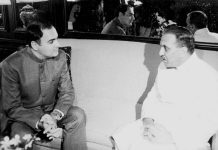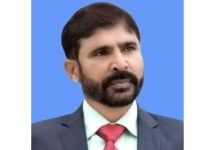Dr. Muhammad Akram Zaheer
World War II remains one of the most significant and transformative events in modern history, not merely because of its unprecedented global scope or catastrophic death toll, but due to the complex interplay of ideologies, unfinished business from earlier conflicts and the competing narratives that continue to shape geopolitics. Unlike conflicts with clear beginnings and endings, World War II represents a culmination and continuation of many unresolved tensions from previous decades. It is a vivid demonstration of how history rarely conforms to neat chronological boundaries and how its repercussions echo far beyond the battlefield. To understand the profundity of World War II, one must first consider the argument that it was not an isolated event, but rather part of a broader historical continuum. Numerous historians have contended that the years 1914 to 1945 encompassing both World Wars and the interwar period should be seen as one protracted global conflict. The collapse of four major empires the Austro-Hungarian, Ottoman, Russian andGerman during and after World War I, left behind a vacuum of power, creating fragile new nation-states and intensifying nationalist and ethnic tensions. The peace treaties, especially the Treaty of Versailles, sowed seeds of resentment and revanchism, particularly in Germany, where economic hardship and wounded national pride facilitated the rise of Adolf Hitler and the Nazi regime. Moreover, the ideological dimensions of this extended conflict are vital to consider. Some scholars characterize this period as a global civil war a titanic struggle between capitalism and communism and democracy and dictatorship. These rival ideologies deeply entangled in both the World Wars and continued to manifest in the Cold War that followed. The entwined nature of these conflicts suggests that World War II was not a discrete rupture but a phase in a longer arc of global upheaval and ideological confrontation.
Another critical dimension of World War II’s legacy is the dispute over its starting point a reflection of the clashing narratives adopted by different nations. While the conventional European account begins with the joint Nazi-Soviet invasion of Poland in September 1939, other perspectives complicate this timeline. The United States often regards the attack on Pearl Harbor on December 7, 1941, as the true beginning of the war due to its formal entry into the conflict thereafter. Conversely, the Russian narrative emphasizes the German invasion of the Soviet Union in June 1941, conveniently omitting Soviet complicity in the earlier partitioning of Poland. China, on the other hand, traces its involvement to 1937 with the outbreak of the Second Sino-Japanese War, or even earlier to the Japanese occupation of Manchuria in 1931. The Spanish left may trace the conflicts ideological genesis to the Spanish Civil War in 1936, viewing it as a precursor to the larger clash between fascism and republicanism. These diverging starting points are more than historical disagreements they represent deep-rooted national identities and political ideologies. The way countries remember and interpret World War II is often shaped by internal needs for heroism, victimhood, or justification. This selective memory fuels ongoing international tensions, especially when political leaders weaponize history for contemporary objectives.
Nowhere is the instrumentalization of historical memory more evident than in Russia under Vladimir Putin. The Russian narrative of the “Great Patriotic War” centers on Soviet heroism and sacrifice, consciously ignoring the Stalinist terror that paralleled Hitler’s atrocities. In recent years, Putin has not only rehabilitated Joseph Stalin’s image but also propagated the idea that the Soviet Union could have defeated Nazi Germany without Allied assistance a historically inaccurate but politically convenient claim. This narrative bolsters a form of Russian nationalism that draws on both Soviet pride and tsarist imperialism, advocating for Russian supremacy over Eurasia. Such mythologizing is not merely symbolic. It underpins and legitimizes contemporary Russian aggression, including the invasion of Ukraine in 2014 and the ongoing war that began in 2022. As history is rewritten to suit modern ambitions, selective memory becomes a powerful tool for justifying territorial expansion, authoritarian governance and anti-Western sentiment.
World War II also restructured the balance of global power, particularly between Europe and the United States. The war signaled the end of British global dominance and the beginning of a transatlantic alliance, albeit one marred by tensions and asymmetries. The United Kingdom, while proud of its wartime resilience, found itself increasingly reliant on American military and economic support. The notion of a “special relationship” served as both a diplomatic tool and a psychological balm for British decline. For the United States, the war catalyzed a permanent departure from isolationism. Although U.S. foreign policy has oscillated between interventionism and retrenchment since 1945, the threat posed by the Soviet Union compelled a sustained American presence in Europe and beyond. Yet, this commitment has shown signs of erosion in recent years. Under the Trump administration, the United States appeared to retreat from its role as a global leader, further destabilizing an international order built on the postwar ideals of sovereignty and multilateralism.
The human toll of World War II was staggering—an estimated 85 million people perished, many of them civilians. The ideological fervor that characterized the conflict contributed to this cruelty. Racial supremacy and anti-Semitism drove Nazi Germany’s genocidal policies, most horrifically manifested in the Holocaust. Meanwhile, the Soviet regime under Stalin conducted class-based exterminations, targeting landowners, intellectuals and perceived enemies of the state. The war,s devastation was not confined to direct combat. Civilian populations suffered from famine, disease, mass displacement and systematic atrocities. The deliberate targeting of civilians became normalized, leading to long-term psychological and demographic consequences. Postwar societies had to grapple with the trauma, guilt and moral ambiguities that accompanied survival.
Despite the official end of hostilities in 1945, many of the war,s injustices persisted. Prisoners of war, forced laborers and civilians accused of collaboration were subjected to harsh reprisals, often without due process. The British handover of anti-communist Yugoslavs and Soviet Cossacks to communist regimes led to mass executions. The Soviet Union forcibly repatriated its own soldiers who had fought or surrendered under German command, subjecting them to execution or lifelong labor in gulags. In the postwar years, political and social conflicts continued to fester. In Italy, returning soldiers who criticized the Soviet Union were labeled fascists by the communist press, igniting domestic tensions. In Germany and France, returning men faced unsettling revelations about wartime sexual violence and women,s survival strategies, resulting in reactionary social attitudes that persisted well into the 1950s. As the generations that lived through World War II pass away, the collective memory of the conflict becomes increasingly abstract. The immense scale of suffering, once intimately known, risks being reduced to numerical data. This detachment threatens the moral resolve that has underpinned decades of relative peace among major powers. The disappearance of firsthand witnesses allows for the distortion and politicization of history, undermining efforts to maintain a rules-based international order.
World War II was a crucible in which the modern world was forged. Its causes were rooted in earlier conflicts, its conduct shaped by unprecedented brutality and its aftermath defined by a fragile quest for order. Despite its global nature, the war did not yield a singular, unified memory. Instead, each nation fashioned its own narrative, often shaped more by domestic needs than historical truth. This fragmented remembrance continues to influence global politics. As leaders invoke selectively remembered pasts to justify present ambitions, the wars legacy remains a source of division as much as it is a call for unity. In a time when global stability is once again under threat from autocratic resurgence to geopolitical realignments, understanding the complexities and unresolved tensions of World War II is not only an academic exercise, but also a political necessity. Only by confronting the full scope of this epochal conflict can we hope to preserve the fragile peace it left behind.

















